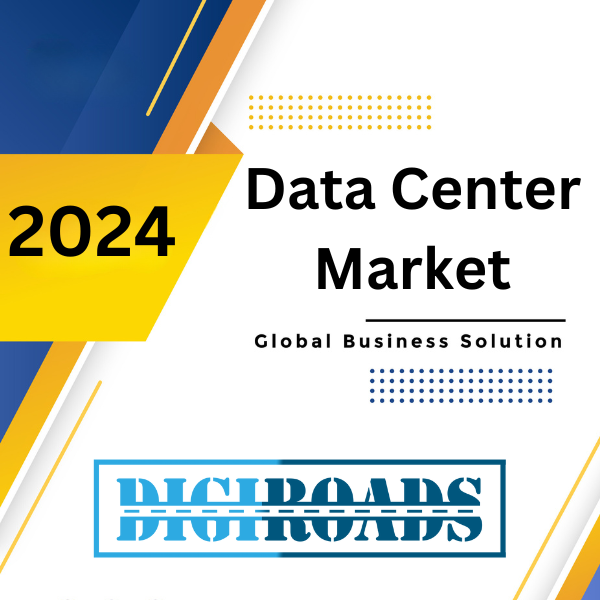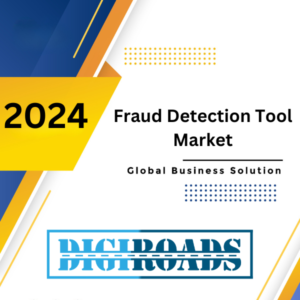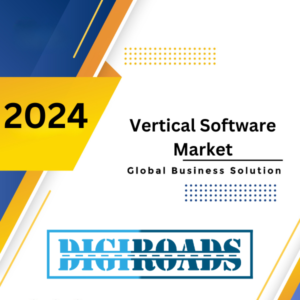Description
Data Center Market: Global Opportunity Analysis and Industry Forecast, 2024-2034
Data Center Market Overview:
The global data center market was valued at $190 billion in 2023, and is projected to reach $600 billion by 2034, registering a CAGR of 12% from 2024 to 2034.The data center market is experiencing rapid growth and transformation, driven by the increasing demand for digital services and the rising adoption of cloud computing technologies. In this dynamic landscape, organizations are compelled to invest in robust data center infrastructure to accommodate the escalating volumes of data and ensure seamless operations.
Key drivers of this market surge include the burgeoning need for high-performance computing, storage solutions, and efficient data management. The advent of emerging technologies like artificial intelligence, edge computing, and the Internet of Things further amplifies the demand for advanced data center capabilities.
As businesses strive to enhance agility, scalability, and security in their digital operations, colocation services and hyperscale data centers are becoming integral components of their strategies. Additionally, sustainability and energy efficiency are emerging as critical considerations, prompting innovations in green data center solutions.
The competitive landscape is characterized by strategic partnerships, mergers, and acquisitions as industry players strive to offer comprehensive and integrated data center services. As the global data center market continues to evolve, understanding these trends and developments is paramount for stakeholders navigating this dynamic ecosystem.
Data Center Market – Report Coverage:
The “Data Center Market Report – Forecast (2024-2034)” by Digiroads Consulting, covers an in-depth analysis of the following segments in the Data Center Market.
| Attribute | Segment |
| By Component |
|
| By Type |
|
| By End User |
|
| By Enterprise Size |
|
| By Region |
|
Data Center Market – Top Trends:
- Edge Computing Integration: With the proliferation of IoT devices and the need for real-time data processing, edge computing is gaining prominence. Data centers are increasingly being designed to support edge computing, bringing processing closer to the source of data generation.
- Hybrid and Multi-Cloud Adoption: Organizations are embracing hybrid and multi-cloud strategies for flexibility and resilience. Data centers are evolving to support seamless integration between on-premises infrastructure and various cloud environments, enabling efficient data management across platforms.
- Rising Demand for Colocation Services: Colocation services are witnessing increased demand as businesses seek cost-effective and scalable solutions. Data center providers offering colocation services are becoming strategic partners for enterprises looking to outsource their IT infrastructure.
- Sustainability and Green Initiatives: Sustainability is a key focus in the data center industry. There is a growing emphasis on energy-efficient designs, renewable energy adoption, and eco-friendly practices to reduce the environmental impact of data center operations.
- Increased Security Measures: As cyber threats continue to evolve, data center security is a top priority. Advanced security measures, including biometric authentication, AI-driven threat detection, and comprehensive compliance standards, are being integrated to safeguard critical data and infrastructure.
- 5G Infrastructure Development: The rollout of 5G networks is influencing data center architectures to handle increased data traffic and low-latency requirements. Edge data centers are particularly crucial in supporting 5G applications and services.
- Focus on Modular and Micro Data Centers: Modular data centers and micro data centers are gaining popularity for their scalability and rapid deployment capabilities. These solutions cater to specific needs, providing flexibility in expanding or optimizing data center capacity.
- AI and Machine Learning Integration: AI and machine learning technologies are being employed to optimize data center operations. Predictive analytics and automation help enhance efficiency, reduce downtime, and improve overall performance.
- Software-Defined Data Centers (SDDC): SDDCs are gaining traction due to their ability to virtualize and automate data center infrastructure. This approach improves agility, scalability, and resource utilization, aligning with the evolving needs of modern businesses.
- Global Expansion and Connectivity: Data center providers are expanding their geographical reach to meet the increasing demand for connectivity. Establishing data centers in strategic locations enhances global coverage, reduces latency, and supports international business operations.
Data Center Market – Company Product Analysis:
- Microsoft:
Product Focus: Azure is Microsoft’s cloud computing platform, offering a range of services such as virtual machines, AI, and analytics. Azure also includes Azure Data Centers, providing a global network for hosting applications and data.
- Oracle:
Product Focus: Oracle Cloud Infrastructure offers cloud services, including computing, storage, and databases. Oracle emphasizes high-performance computing capabilities, along with advanced security features for data protection.
- Equinix Inc.:
Product Focus: Equinix specializes in colocation services, providing interconnected data centers worldwide. Their Equinix Cloud Exchange enables direct, secure connections to multiple cloud service providers.
- SAP SE:
Product Focus: SAP offers SAP HANA, a powerful in-memory database and application platform. Their focus on enterprise applications and business software solutions impacts data center requirements for performance and reliability.
- NTT Communication Corporation:
Product Focus: NTT Communications offers a suite of data center services, including colocation, managed hosting, and cloud services. Their global network supports businesses with diverse connectivity needs.
- Alphabet Inc.:
Product Focus: Google Cloud Platform (GCP) is Alphabet’s cloud offering, providing a wide array of services, including computing, storage, machine learning, and data analytics. Google emphasizes data security and innovative technologies.
- IBM Corporation:
Product Focus: IBM Cloud includes infrastructure services, AI and machine learning tools, and blockchain solutions. IBM’s focus on hybrid cloud and AI impacts data center requirements for flexibility and advanced capabilities.
- Digital Realty:
Product Focus: Digital Realty is a prominent provider of data center solutions, including colocation and interconnection services. They specialize in offering scalable and reliable infrastructure for businesses of all sizes.
- Hewlett Packard Enterprise (HPE):
Product Focus: HPE provides a range of data center solutions, including servers, storage, and networking products. Their focus on edge computing and hybrid IT influences data center architecture considerations.
- Amazon.com Inc.:
– Product Focus: Amazon Web Services (AWS) is a comprehensive cloud platform offering diverse services, from computing and storage to AI and IoT. AWS’s global infrastructure impacts data center requirements for scalability and geographic reach.
Key Market Players:
Product/Service launches, approvals, patents and events, acquisitions, partnerships and collaborations are key strategies adopted by players in the Data Center Market . The top 10 companies in this industry are listed below:
- Microsoft
- Oracle
- Equinix Inc.
- SAP SE
- NTT Communication Corporation
- Alphabet Inc.
- IBM Corporation
- Digital Realty
- Hewlett Packard Enterprise
- Amazon.com Inc.
Table of Contents
- INTRODUCTION
1.1 Study Assumptions & Market Definition
1.2 Scope of the Study
- RESEARCH METHODOLOGY
- EXECUTIVE SUMMARY
- MARKET DYNAMICS
4.1 Market Overview
4.2 Market Drivers
4.3 Market Restraints
4.4 Porter’s Five Forces Analysis
4.4.1 Bargaining Power of Suppliers
4.4.2 Bargaining Power of Buyers
4.4.3 Threat of New Entrants
4.4.4 Threat of Substitute Products
4.4.5 Intensity of Competitive Rivalry
- MARKET SEGMENTATION
- Data Center Market – By Financial Services
- Bank and Capital Markets
- Payments
- Digital Currencies
- Value Added Services
- Data Center Market – By Distribution Channels
- Bank Channels
- App Markets
- Distributors
- Aggregators
- Others
- Data Center Market – By Deployment Type
- Cloud
- On-premise
- Hybrid
- Others
- Geography
- North America
- Europe
- Asia-Pacific
- South America
- Africa
- COMPETITIVE LANDSCAPE
6.1 Most Adopted Strategies
6.2 Market Share Analysis
6.3 Company Profiles
- Microsoft
- Oracle
- Equinix Inc.
- SAP SE
- NTT Communication Corporation
- Alphabet Inc.
- IBM Corporation
- Digital Realty
- Hewlett Packard Enterprise
- Amazon.com Inc
- MARKET OPPORTUNITIES AND FUTURE TRENDS





